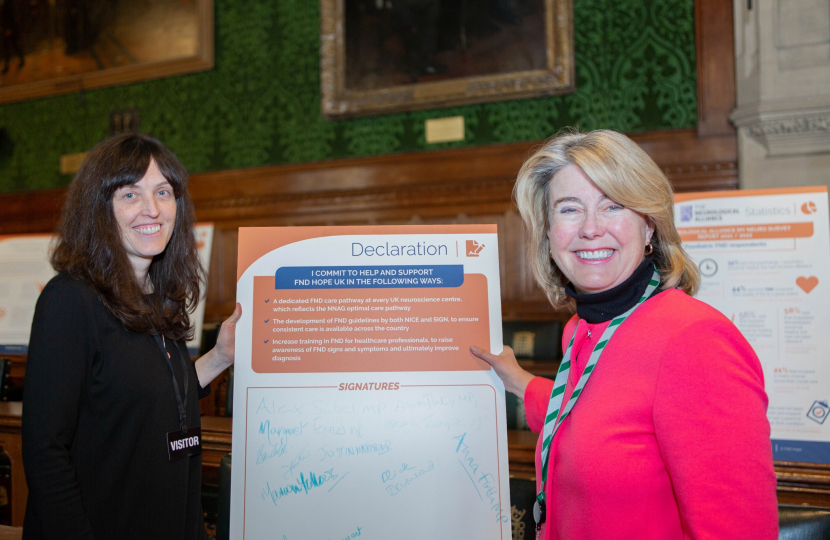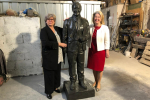
The Southend West MP attended the inaugural FND Awareness Day in the Houses of Parliament on the 9th of February to highlight the importance of supporting those living with the condition and called for further action on care pathways.
FND is a problem with the functioning of the nervous system and how the brain and body send and receive signals. People living with FND experience life-changing symptoms, similar to Parkinson’s Disease and long-term disability comparable to that of MS.
It is the second most frequent reason for a neurology outpatient appointment and impacts up to 100,000 adults and 20,000 young adults in the UK. Local constituent, Rachael Sutton, attended the event alongside Anna Firth MP, who has been working with her to tackle the daily challenges Rachael faces due to FND.
She has been battling with extreme symptoms for the past two years, including daily seizures, speech issues, sudden falls and chronic fatigue.
Signing the pledge, Anna committed her support to FND Hope UK’s campaign to introduce dedicated NHS care for FND at every neuroscience centre across the country, as well as increasing FND training, raising awareness of symptoms and ultimately improving diagnosis.
FND Hope UK organised the day which had cross-party from MP’s who had been contacted by constituents struggling with the disease. The charity is part of the first and only global patient-led charity for people with Functional Neurological Disorder.
Anna said,
“My amazing constituent, Rachel, came to me last year as part of her brave fight to change the experience of the thousands of people who suffer with FND in England.”
“I was delighted to sign the pledge and will continue raising the importance of supporting those people living with FND to Health Ministers so we can give them the quality of life they deserve.”
Rachel Sutton said,
“The lack of awareness, understanding and adequate treatment for FND has made my life, and those close to me, incredibly difficult these past 2 years.”
“Once a fiercely independent woman, I can no longer drive, work as a teacher within a classroom, or do many other everyday tasks independently which I used to take for granted.”

